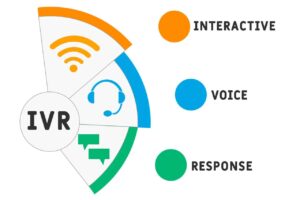Interactive Voice Response

IVR stands for Interactive Voice Response. It is a technology that allows a computer system to interact with humans through the use of voice and DTMF (Dual-Tone Multi-Frequency) tones input via a keypad. IVR systems are commonly used in telephone systems to enable users to interact with a company’s host system via a telephone keypad or by speech recognition, after which they can service their own inquiries by following the IVR menu.
Here are some key features and functions of IVR systems:
Automated Menu System: IVR systems provide callers with a series of menu options that they can navigate using their phone’s keypad or by speaking specific commands.
Call Routing: IVRs can route calls to the appropriate department or person based on the caller’s input or specific criteria.
Information Retrieval: Users can access information such as account balances, order status, and other relevant data through the IVR system.
Transaction Processing: IVRs allow users to perform certain transactions over the phone, such as bill payments, fund transfers, or appointment scheduling.
Speech Recognition: Some advanced IVR systems use speech recognition technology, allowing users to interact with the system by speaking naturally rather than using a keypad.
Integration with Databases: IVRs can integrate with databases to retrieve and update information, providing real-time data to callers.
Customer Support: IVR systems are often used in customer support scenarios to handle frequently asked questions and direct callers to the appropriate support channels.
IVR systems are widely used in various industries, including telecommunications, banking, healthcare, and customer service, to enhance efficiency, streamline processes, and provide a more seamless experience for callers







